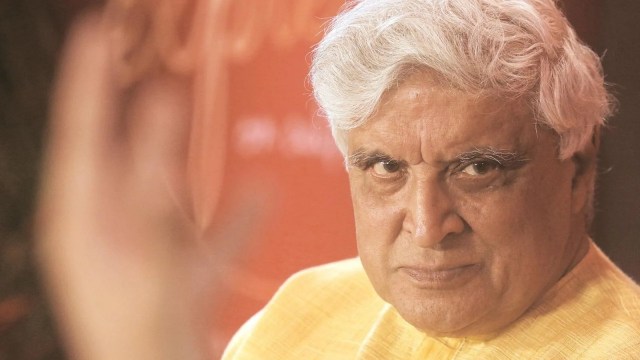
West Bengal Urdu Academy’s decision to formally postpone a literary festival in which lyricist and poet Javed Akhtar was invited as a key speaker is an excellent example of an emerging form of “politics of hurt sentiment”, which has not been given adequate attention in our public discussion. According to media reports, the Jamiat-e-Ulama Kolkata, one of the powerful Islamic religious organisations in the state, strongly opposed the Academy’s decision to host Akhtar. The Jamiat also threatened the government that it might go for a state-wise protest if its demands were ignored.
There is a straightforward explanation to make sense of this episode. One may take refuge in the standard freedom-of-speech-and-expression argument to reject and oppose the threats issued by the self-claimed custodians of religion and culture. There is certainly merit in this explanation. We cannot and should not ignore the significance of liberal values in protecting the artistic freedom of poets, painters, and intellectuals. Yet, this freedom of speech template cannot help us in unwrapping the layers of politics that produce such episodes. We must ask a set of very different questions: How does a particular person or his/her creative work become hurtful and upsetting for a self-claimed guardian(s) of religion at a particular point of time? What are the possible ways to disseminate this collective hurt and transform it into a national question? And, finally, what is the role of the political class in sustaining these processes?
According to the news reports, the President of Jamiat Kolkata, Maulana Siddiqullah Chowdhury, wrote a letter condemning Javed Akhtar. Two key elements of this letter are crucial. First, it makes a categorical suggestion to the authorities to “…host some responsible persons because the purpose of the Urdu Academy is to serve Urdu literature and writers, not to spread and propagate hatred of God.”
This is a strange suggestion. Literary societies like the Urdu Academy are expected to function as cultural entities. There cannot be a direct connection between “serving Urdu” language and protecting Islam from those who, according to this letter, propagate hatred against God. After all, Urdu cannot be called a religious language exclusively associated with Muslims. Yet, Jamiat leaders wanted to capitalise on this controversy to create a legitimacy for themselves to speak on behalf of the Muslim communities of Bengal. It is worth noting here that despite being an independent cultural entity, the Urdu Academy of West Bengal is associated with the Department of Minority Affairs and Madrasah Education of the West Bengal government. These linkages transform the Academy into a “minority institution” both in religious as well as linguistic terms. Jamiat invoked this “minority” status strategically to reclaim its status as the representative body of Muslims in the state.
The second element of this letter is about a comparative conceptualisation of hurt sentiments. The letter says: “…we are sure that you will definitely pay attention to our requests…If our people’s requests are not heeded, we will be forced to adopt another method prevalent in democracy. Earlier, Jamiat Ulema-e-Hind had launched a movement against Taslima Nasreen, who had blasphemed the teachings of the Prophet, and forced her to leave Bengal”.
The nature of the threat in this statement requires a critical assessment. In order to further expand the scope of Akhtar’s status as a potential political symbol, the letter evokes the Bangladeshi writer as a legitimate reference point. The so-called “struggle” of Jamiat against Nasreen is highlighted to provide a historical substance to Jamiat’s demand. The presence of Akhtar, it is asserted, would produce “hurt sentiments”, very similar to what Nasreen’s work had generated years ago. This comparison was immensely helpful. Jamiat leaders did not cite any comments, statement, or artistic work of Akhtar, which, by their own definition, was inappropriate or offensive. Yet, the comparison with Nasreen was used to create an impression that Akhtar was an anti-Islamic figure.
The dissemination of this controversy underlines another important aspect of this new politics of hurt sentiment. Akhtar has a media-friendly image as a serious public intellectual, an established film personality and a thinking poet. He is also known for his views on religion and politics. Jamiat leaders, it appears, were fully aware of the cultural capital associated with Akhtar’s public presence. Opposing Akhtar in the name of religious sentiments, thus, was not at all a problematic proposition. In fact, it had a lot of political advantages. This is exactly what the Jamiat leaders did. They publicised this episode by sharing the letter with the media. This move helped them get tremendous media attention. At the same time, they also managed to create a new and effective channel of communication with the political class.
The postponement of this cultural event not only enhances their political capital to bargain with the ruling establishment but also reestablishes their hegemony as the stakeholder of Muslim cultures and religious worldviews. This is perhaps the most interesting outcome of the emerging politics of hurt sentiments.
The writer is professor, CSDS